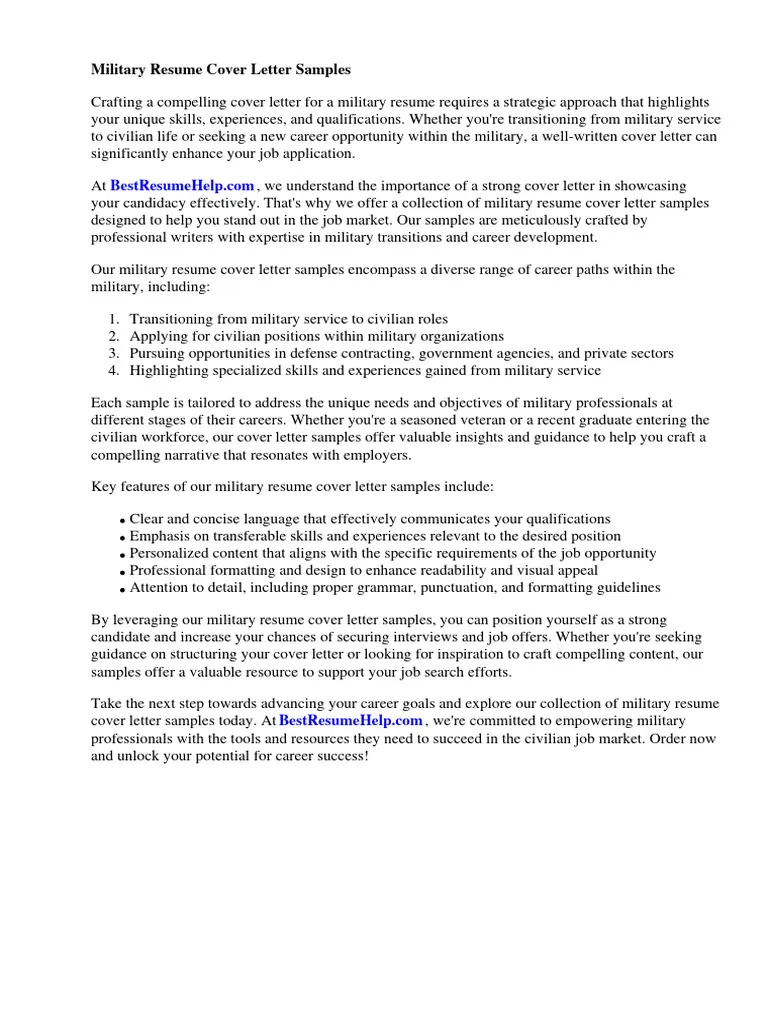What is a Retired Military Cover Letter
A retired military cover letter serves as your introduction to a potential employer, providing a concise overview of your qualifications and expressing your interest in a specific job. It’s an essential document for veterans transitioning to civilian employment because it bridges the gap between military jargon and civilian expectations. The cover letter allows you to showcase your skills and experience in a way that resonates with hiring managers who may not be familiar with military roles. It provides a space to translate military experience into terms that demonstrate value and relevance to the target position, highlighting your key strengths and achievements. A well-crafted cover letter can significantly increase your chances of getting an interview and landing your desired job.
Key Components of a Retired Military Cover Letter
A strong cover letter includes several critical elements. First, the contact information, including your name, address, phone number, and email address, along with the date. Second, the salutation should be addressed to a specific person whenever possible; if not, use a professional greeting. The body of the letter should then highlight your key qualifications, including relevant skills and experience that match the job description. Then, clearly articulate your value proposition and how you can contribute to the company’s success. Finally, the closing should express your interest in the position and include a call to action, such as requesting an interview. Each component works together to create a cohesive and compelling narrative.
Contact Information and Salutation
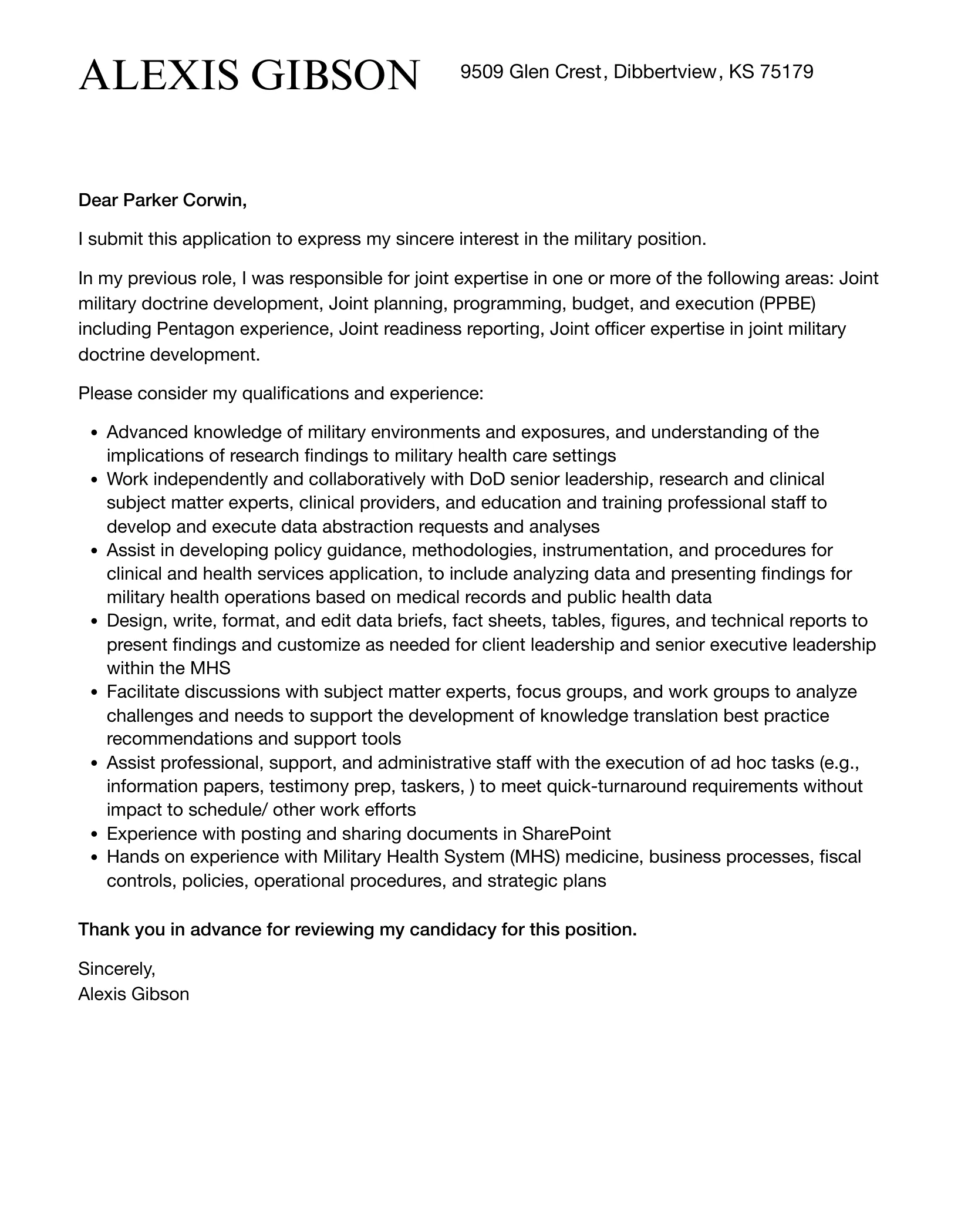
Begin your cover letter with your full name, address, phone number, and professional email address. Ensure that your email address is professional and appropriate for job applications. This section is very important to give the first impression. Following this, include the date. Next, address the hiring manager by name, if possible; research the company’s website or LinkedIn to identify the hiring manager or the person to whom you should address your letter. Using a specific name shows that you’ve done your research and are genuinely interested in the opportunity. If you can’t find a name, a general salutation like ‘Dear Hiring Manager’ is acceptable. Avoid generic greetings like ‘To Whom It May Concern,’ as they can make your application seem impersonal.
Highlighting Your Military Experience
The next crucial step is to translate your military experience into civilian terms. Identify the skills and experiences from your military career that align with the job requirements. Focus on specific roles and responsibilities. Instead of using military acronyms or jargon, explain your duties in a way that a civilian hiring manager can understand. For instance, instead of stating ‘Managed a platoon,’ describe the number of personnel you supervised, the types of projects you oversaw, and the results achieved. Use action verbs to describe your accomplishments and quantify your achievements whenever possible. Highlight your ability to lead teams, manage projects, and solve complex problems.
Showcasing Transferable Skills
Identify and showcase your transferable skills—the skills you’ve developed in the military that are valuable in civilian jobs. Common transferable skills include leadership, teamwork, communication, problem-solving, time management, and attention to detail. Provide specific examples of how you’ve utilized these skills in your military roles. For example, if you were responsible for logistics, describe how you managed resources, planned and executed operations, and ensured efficient delivery. If you worked in a team, describe the size of the team, your role, and the successful outcomes achieved. Tailor your skills to the job description. This will make it easier for the hiring manager to see how your skills translate to the open position.
Demonstrating Leadership Abilities
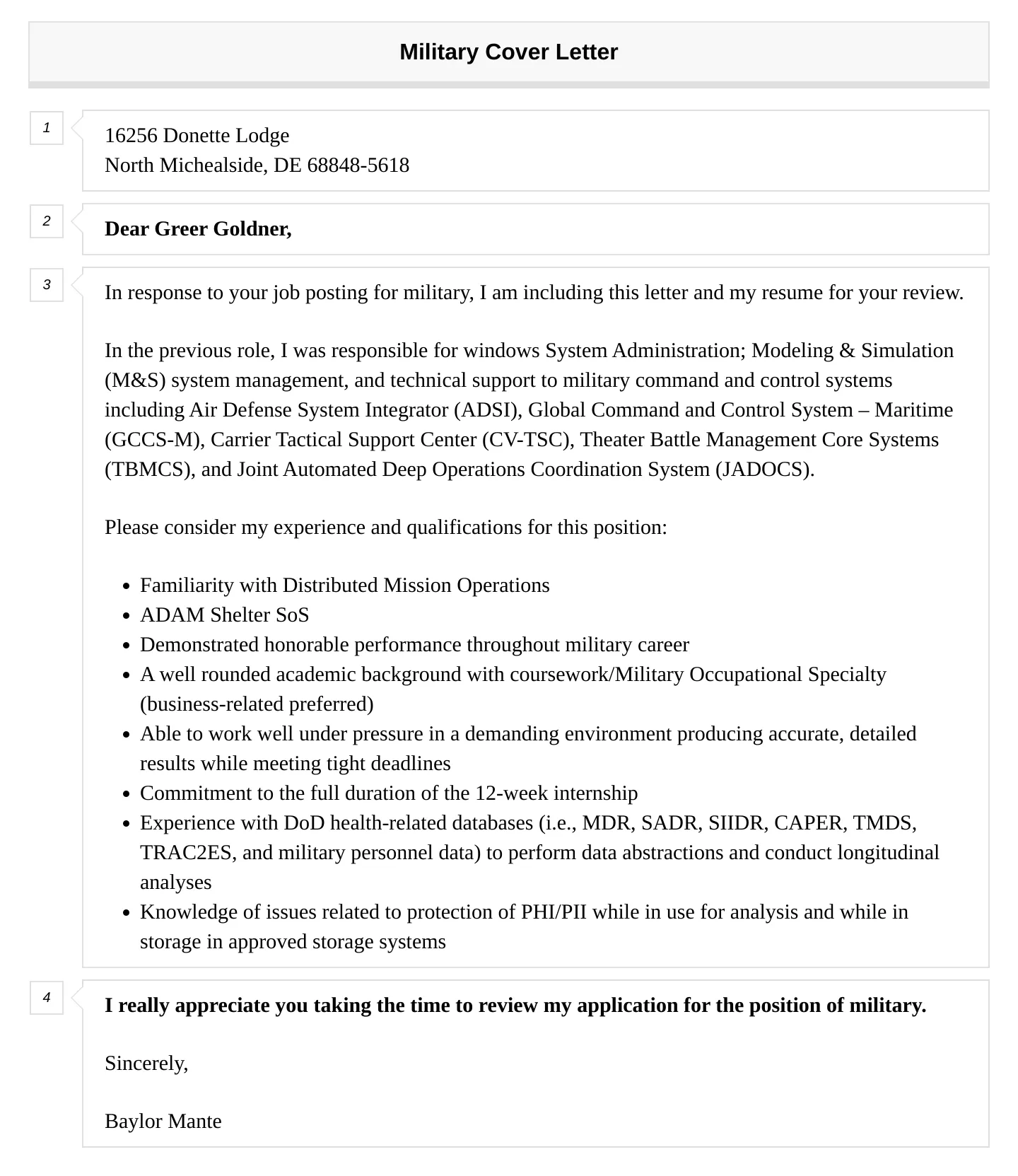
Leadership is a highly valued skill in most civilian jobs. In your cover letter, provide concrete examples of your leadership experience. Describe situations where you took initiative, motivated others, or led teams to achieve specific goals. Quantify your achievements by including the number of people you led, the projects you managed, and the results you achieved. For example, if you led a team that improved efficiency, state the percentage improvement achieved. If you mentored junior personnel, detail the impact of your mentoring. Highlighting your leadership skills can help you stand out. Provide a clear and persuasive narrative that emphasizes your ability to lead and inspire others.
Quantifying Achievements with Data
Use data and metrics to quantify your accomplishments and demonstrate your value to potential employers. Instead of simply stating ‘Managed projects,’ provide specific details such as ‘Managed projects with budgets up to $500,000, delivering them on time and under budget.’ Similarly, if you improved efficiency, state the percentage improvement. Quantifying your achievements makes your cover letter more compelling. Use numbers to illustrate your successes, such as the number of people you supervised, the amount of money you saved, or the percentage increase in productivity. Data makes your claims more credible and provides a clear picture of your impact.
Tailoring Your Cover Letter to the Job
Customize your cover letter for each job application. Do not use a generic cover letter for every position. Carefully review the job description. Identify the key requirements and skills that the employer is looking for. Then, tailor your cover letter to highlight the experiences and skills that are most relevant to the specific job. Use keywords from the job description throughout your cover letter. If the job description emphasizes teamwork, for instance, provide examples of your teamwork abilities. By tailoring your letter, you show the employer that you are genuinely interested in the position and that you have the skills and qualifications they are seeking. This personalization makes your application more impactful.
Researching the Company and Position
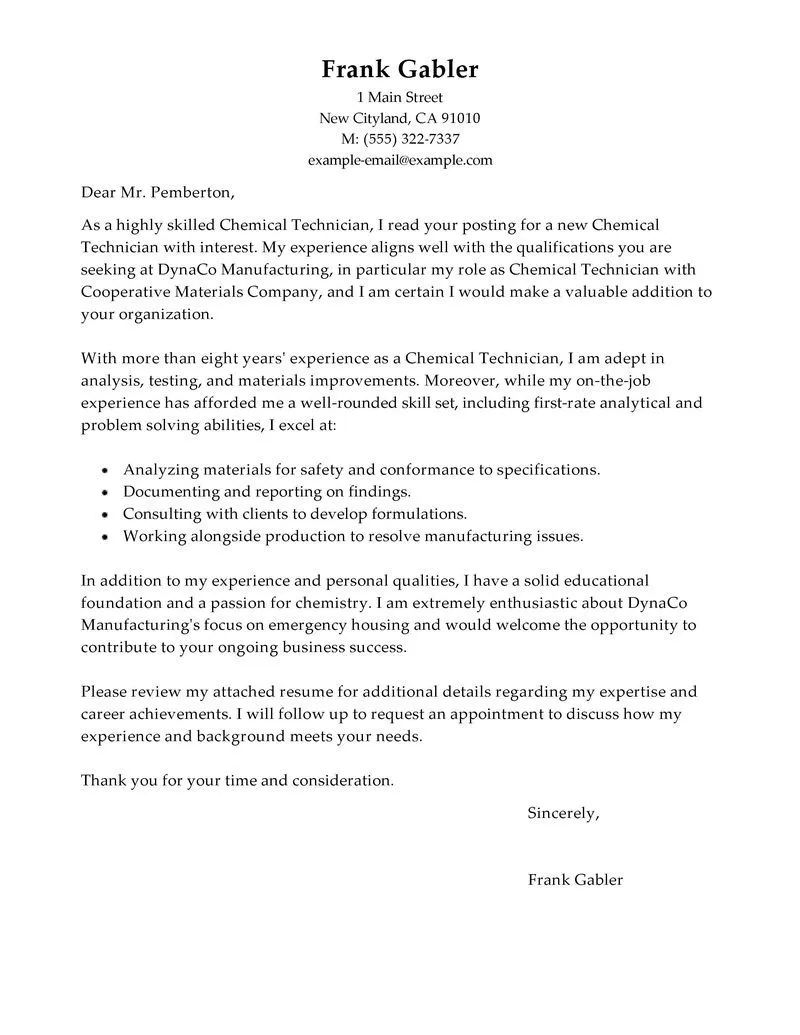
Conduct thorough research on the company and the specific position. Visit the company’s website, read industry news, and look for any information that can give you insights into the company’s culture, values, and goals. Understanding the company’s mission and how your skills can contribute to it is crucial. Explain why you are interested in working for the company and how your experience aligns with their objectives. Demonstrate your knowledge of the company in your cover letter. Show that you are prepared to tailor your experience to their requirements. This level of preparation demonstrates your dedication and professionalism.
Using Keywords Effectively
Incorporate relevant keywords from the job description and industry standards into your cover letter. Review the job description carefully and identify the key skills, experiences, and qualifications the employer is seeking. Use these keywords naturally throughout your cover letter, including in your opening paragraph, body paragraphs, and closing. Using keywords ensures that your application passes through applicant tracking systems (ATS), the software many companies use to screen applications. Avoid keyword stuffing, which involves excessive use of keywords. Write in a natural and professional tone, incorporating keywords strategically to highlight your qualifications.
Formatting and Proofreading
Ensure your cover letter is well-formatted and free of errors. Use a professional font like Arial or Times New Roman, and maintain consistent font sizes and spacing. Proofread your cover letter carefully for any grammatical errors, spelling mistakes, and typos. Have someone else review your cover letter before submitting it. A clean and error-free cover letter demonstrates professionalism and attention to detail. A poorly formatted or error-filled cover letter can make a negative impression and decrease your chances of being selected for an interview.
Call to Action and Closing
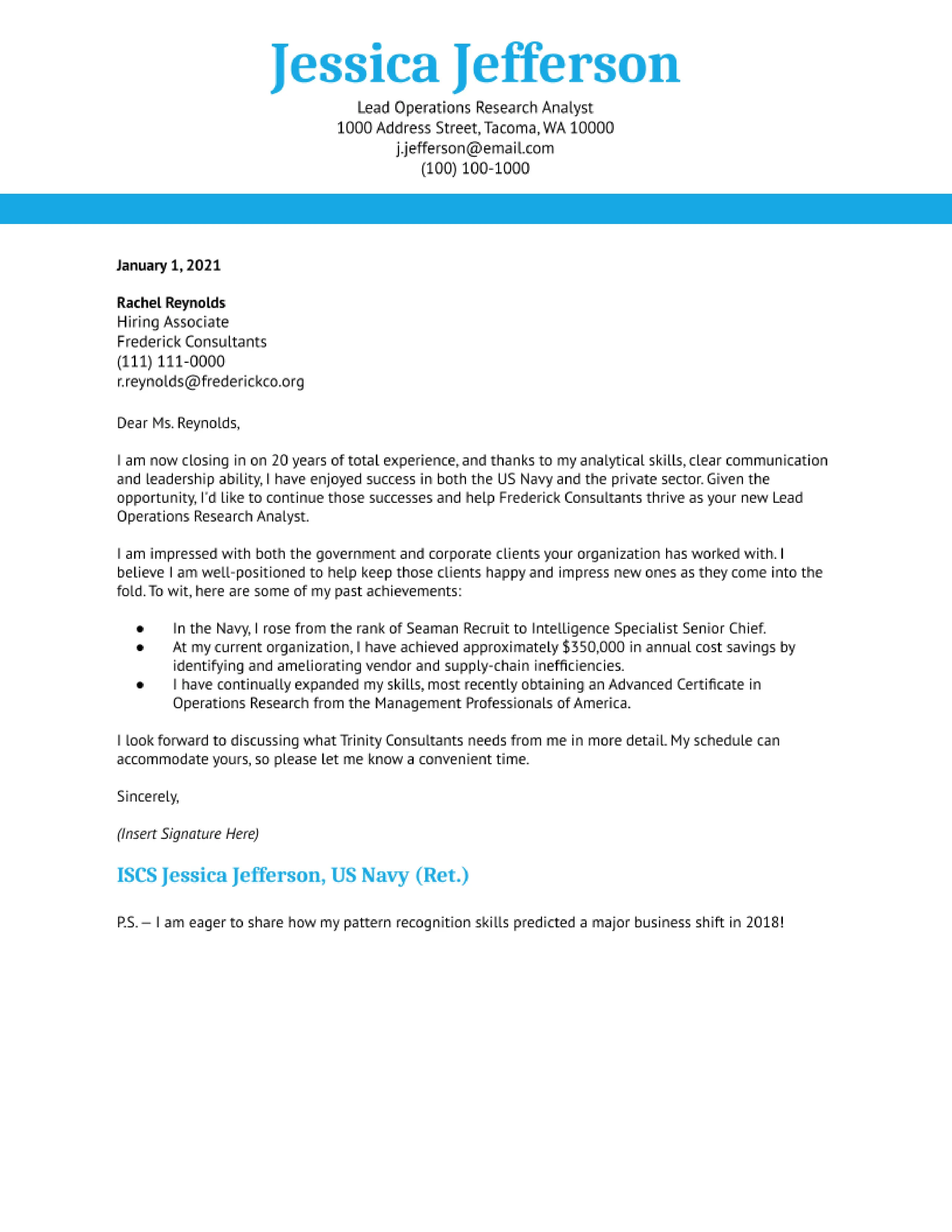
Conclude your cover letter with a call to action, such as requesting an interview. Express your enthusiasm for the position and your interest in discussing your qualifications further. Thank the hiring manager for their time and consideration. Include your contact information again, making it easy for the employer to reach you. Use a professional closing, such as ‘Sincerely’ or ‘Best regards,’ followed by your name. Your closing statement should leave the reader with a positive impression and encourage them to take the next step in the hiring process.
